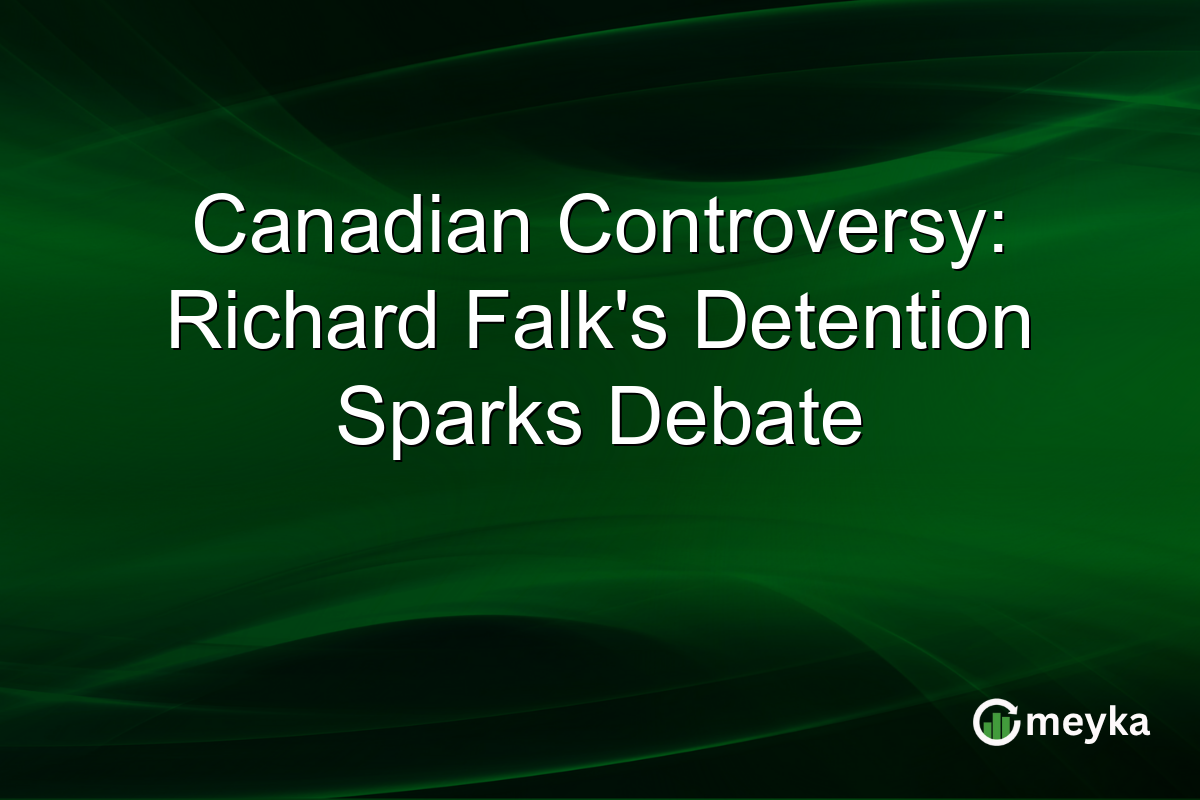Canadian Controversy: Richard Falk’s Detention Sparks Debate
In a significant development, Richard Falk, a noted professor emeritus of international law, faced over four hours of detention by Canadian authorities upon his arrival to attend a human rights tribunal. This incident has ignited a widespread debate concerning Canada’s approach to freedom of speech and its implications for international human rights advocacy. The controversy surrounding Richard Falk’s Canada detention illustrates a critical intersection of politics, law, and human rights, drawing global attention.
Continue Reading on Meyka
This article is available in full on our main platform. Get access to complete analysis, stock insights, and more.
Read Full Article →





